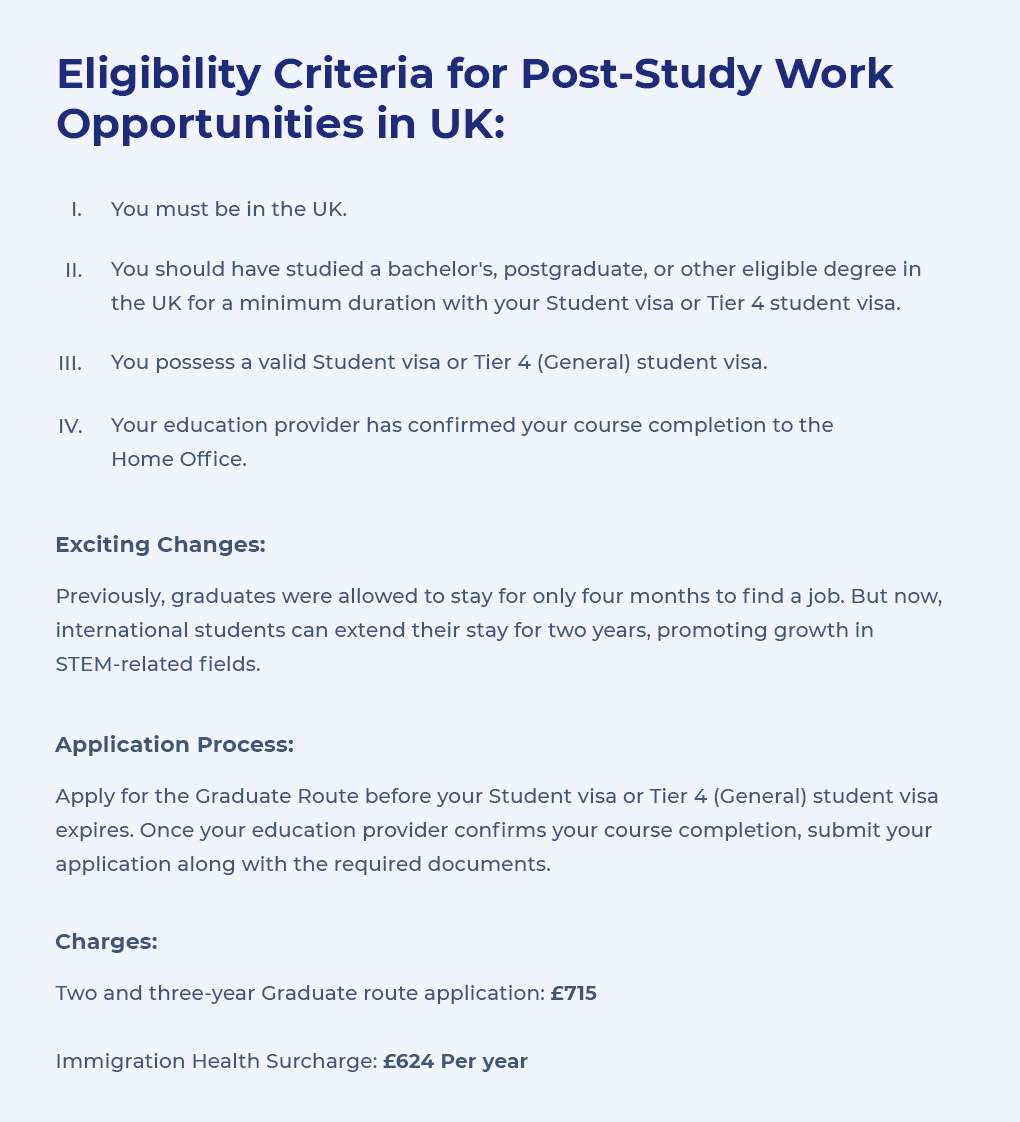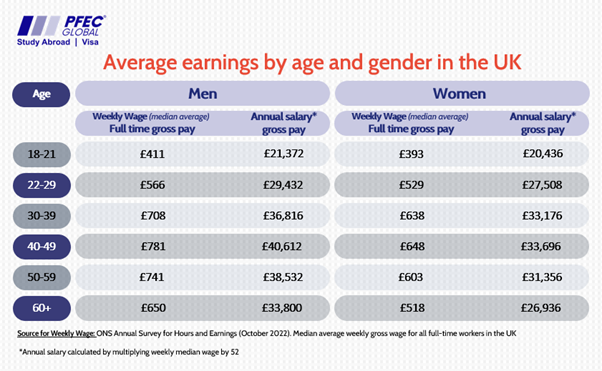

In the coming, international students continue to be drawn to the United Kingdom for its world-class education and diverse cultural experiences.
This article delves into the standard of living that international students can expect in the UK, providing insights into various aspects that make up their daily lives.
From accommodations to expenses, this comprehensive guide aims to offer a clear picture of what it's like to live and study in the UK as an international student.
In this blog we will cover the following 16 topics:
The United Kingdom, a hub of global education and home to several ancient and prestigious institutions, provides a unique academic experience. UK residents enjoy the privilege of free public education until the age of 18. When compared to other premier educational destinations, the UK's tuition costs are reasonable.
For an undergraduate three-year program in the UK, the average annual tuition for a student residing on campus is £9,250 for domestic students and can rise up to £38,000 for international students in premier institutions. For some of the elite universities, the fee might go even higher.
Tuition fees for popular undergraduate programs span across:

These figures aim to provide an overview to help students gauge the feasibility of pursuing education in the UK.
Some affordable yet esteemed UK universities include:

various types of accommodation options available for international students in the UK and their associated costs in detail.
On-campus accommodation, also known as university dormitories or halls of residence, is a popular choice for many international students. These accommodations are conveniently located within or near the university campus, making it easy to access classes and other campus facilities.
Cost: The cost of on-campus accommodation can vary depending on factors like the university's location, room size, and included amenities. On average, you might expect to pay around £100 to £300 per week. En-suite rooms or apartments with more amenities tend to be on the higher end of the price range.
Private halls of residence are similar to on-campus accommodation but are owned and managed by private companies. They offer a range of room types and communal facilities, similar to what you might find in on-campus accommodations.
Cost: Private halls of residence are usually priced competitively and can range from around £150 to £300 per week. The cost may vary depending on location, room type, and included amenities.
Private accommodation includes renting apartments, flats, or houses from private landlords. This option provides more independence and the opportunity to live off-campus.
Cost:Cost: The cost of private accommodation varies significantly based on location and the type of property. In cities like London, you might expect to pay around £800 to £1,500 per month for a one-bedroom apartment. Costs can be lower in smaller cities.
Homestays involve living with a local host family. This option provides a unique cultural experience and the chance to immerse yourself in British daily life.
Cost:Cost: The cost of homestays can vary depending on the location, included meals, and level of comfort. On average, you might expect to pay around £150 to £250 per week.
Short-term accommodations include options like hostels, guesthouses, or serviced apartments. These are ideal for students who are just arriving in the UK and need temporary housing until they find a more permanent solution.
Cost:Cost: Short-term accommodations vary in cost, with hostels being the most budget-friendly option. Prices depend on the location and the level of comfort provided.
When it comes to the cost of living in the UK, budgeting for food and groceries is a crucial consideration for international students. The UK offers a diverse range of dining options, from cooking at home to dining out at local eateries. Let's explore the details of food expenses and strategies to manage your budget effectively.
Cooking your meals at home can be a cost-effective option, allowing you to control your expenses and dietary choices. Here's a breakdown of what you can expect:
While cooking at home is cost-effective, occasionally dining out can be a treat. Here's what you can expect when eating out:

5. Getting around in the UK is an important consideration for international students. The country offers a well-connected transportation system that includes public transit options and other modes of travel. Understanding transportation costs and making informed choices can help you manage your budget effectively.
The UK boasts an efficient and integrated public transportation system that includes buses, trains, trams, and the iconic London Underground. Here's what you need to know:
• Oyster Card (London): ): If you're in London, the Oyster card (a smart card for public transport in London) is a convenient way to access public transportation, including the London Underground, buses, and some overground trains. It offers discounted fares compared to buying individual tickets.
An Oyster card can cost around £1.50 for a single bus journey and up to £5.10 for a single Tube journey during peak times.
• Travelcards: In London, you can also purchase daily, weekly, or monthly Travelcards, which provide unlimited travel within specific zones. These are cost-effective if you plan to use public transportation frequently.
• Outside London: In other cities, buses and trains are widely available. Many cities offer student discounts on transportation passes.
Cost: Public transportation costs vary depending on factors like location and frequency of use. On average, you might spend around £50 to £100 per month on public transportation. For instance, Monthly and yearly passes offer better value. Outside London, bus and tram fares differ, but a single journey might typically cost between £1 to £4.
Cycling is a popular and eco-friendly mode of transportation in the UK. Many cities have designated bike lanes and bike-sharing programs.
Cost: If you already own a bicycle, cycling can be a cost-effective way to get around. If not, you can consider purchasing a second-hand bike or using a bike-sharing service, which might cost around £1 to £2 for short rides.
Taxis and ride-sharing services like Uber are available in urban areas. While convenient, they tend to be more expensive than public transportation.
Cost: Taxi and ride-sharing costs depend on the distance traveled. It's advisable to use them for special occasions or when you're in a hurry.

While pursuing your education in the UK, it's important to strike a balance between your academic responsibilities and leisure activities. The UK offers a rich array of cultural experiences and entertainment options for international students. Here's a comprehensive guide to managing your leisure expenses and making the most of your free time.
The UK is steeped in history and culture, with numerous museums, galleries, and historical sites to explore. Many of these attractions offer discounted or free entry for students.
Cost: Entry fees vary depending on the attraction. Some museums and galleries offer free entry, while others might charge around £5 to £15 for students.
London's West End is famous for its world-class theatre productions, but many other cities also offer vibrant performing arts scenes. You can catch plays, musicals, ballets, and other performances.
Cost: Ticket prices vary depending on the production and seating. Discounted tickets might be available for students.
From live music venues to nightclubs, the UK has a lively music and nightlife scene. Many cities have venues that host concerts, gigs, and DJ nights.
Cost: Ticket prices for concerts vary widely depending on the artist and venue. Some clubs might charge an entry fee, especially on weekends.
The UK is known for its beautiful parks and green spaces. You can enjoy leisurely walks, picnics, and outdoor activities.
Cost: Many parks are free to enter. Some outdoor activities might have associated costs, such as renting sports equipment.
Most universities have a wide range of student clubs and societies catering to various interests, from sports and hobbies to cultural and academic pursuits.
Cost: Membership fees for student clubs and societies are usually reasonable and offer access to social events and activities.
The UK's mobile market is dominated by four primary network operators: EE, O2, Vodafone, and Three. However, several Mobile Virtual Network Operators (MVNOs) like Giffgaff, Tesco Mobile, and Virgin Mobile also operate, leveraging the infrastructure of the primary operators to offer their services.
Coverage: Almost all of the UK has strong mobile coverage, with cities and towns boasting 4G and, increasingly, 5G services. Rural areas might have slightly reduced connectivity but still maintain reasonable 3G or 4G coverage.
Cost: Basic pay-as-you-go (PAYG) plans, where you top-up credit as needed, might start as low as £5. These often include a set number of minutes, texts, and a data allowance. Contract plans, which often come with a bundled smartphone, start at around £10 and can go higher based on the phone model and the package's inclusive.
Internet Connectivity in the UK: The UK's broadband landscape is as diverse as its mobile counterpart. Major providers include BT, Virgin Media, TalkTalk, and Sky, among others.
Types of Broadband: From standard ADSL broadband to fibre optic broadband, the UK offers a range of internet speeds to suit different requirements. Fibre optic, particularly, provides lightning-fast internet and is available in most urban areas.
Cost: Standard broadband packages, suitable for regular browsing and streaming, can range from £20 to £30 per month. Fibre optic packages, offering speeds that can reach up to 300 Mbps or even higher, typically range from £25 to £40 per month.
Installation: For those setting up a new connection, there might be an initial installation fee. Some providers waive this fee during promotional periods or for longer contract durations.
Balancing your studies with part-time work can be a great way to manage your expenses and gain valuable work experience while studying in the UK. Here's a comprehensive guide to understanding the part-time work opportunities available to international students..
Many UK universities offer on-campus job opportunities for international students. These positions are designed to be flexible and accommodating to your academic schedule.
Types of On-Campus Jobs:
Work Hours: On-campus jobs usually offer up to 20 hours of work per week during term time and full-time during holidays.
Advantages:
International students are also allowed to work off-campus in the UK, provided they hold a Tier 4 student visa. Off-campus work can provide broader work experience and exposure to the local job market.
Types of Off-Campus Jobs:
Work Hours: Like on-campus jobs, off-campus employment usually allows up to 20 hours of work per week during term time and full-time during holidays.
Advantages:
When considering part-time work as an international student, keep these regulations in mind:
• Work Hours: While studying, you can work up to 20 hours per week during term time and full-time during holidays.
• Minimum Wage: The UK has a minimum wage requirement that employers must adhere to. Be sure to research the current minimum wage rates.
• National Insurance Number: To work legally in the UK, you'll need a National Insurance (NI) number. You can apply for one upon arrival.
It's important to strike a balance between your work commitments and academic responsibilities:
Post-Study Work Rights through The "New Graduate Route“ permits international students to stay and work opportunities, 𝐮𝐩 𝐭𝐨 𝟐 𝐲𝐞𝐚𝐫𝐬 𝐟𝐨𝐫 𝐮𝐧𝐝𝐞𝐫𝐠𝐫𝐚𝐝𝐮𝐚𝐭𝐞𝐬 𝐚𝐧𝐝 𝐦𝐚𝐬𝐭𝐞𝐫'𝐬 𝐝𝐞𝐠𝐫𝐞𝐞 𝐡𝐨𝐥𝐝𝐞𝐫𝐬 𝐚𝐧𝐝 𝐮𝐩 𝐭𝐨 𝟑 𝐲𝐞𝐚𝐫𝐬 𝐟𝐨𝐫 𝐏𝐡𝐃 𝐠𝐫𝐚𝐝𝐮𝐚𝐭𝐞𝐬.

Advantages:
A key monetary detail for international students to factor in is the exchange rate, especially when considering the conversion into British Pounds Sterling. Estimating daily expenses involves understanding the equivalent of your home currency in GBP.
Several exchange services and banks can mark up the rate to boost their profit margins from currency conversion. Given this, it becomes vital for prospective students to delve into both the most affordable and pricier cities in the UK, ensuring they get a clear picture of the potential living costs during their academic journey in the country.
Here are the five most expensive UK cities to live, according to TimeOut:
And if the cost-of-living crisis is tempting you to move somewhere new, here are the five cheapest.
The most recent governmental statistics from August 2023 show that the UK's average weekly wage, not including bonuses, stands at £613 before taxes. This translates to an approximate annual salary of about £31,876, marking a 7.8% rise in the period from April to June 2023. This surge in wages represents the most significant increase since the inception of these records in 2001.
Following are the tables to help you with the clear picture (Data collected from Forbes.

Remarkably, the median compensation for top CEOs (specifically from the FTSE 100 list) soared to an astounding £3.91 million in 2022, reflecting a 16% annual increase.,/b> This figure, presented by the High Pay Centre, an organization analyzing executive compensations, is over 118 times the average UK worker's earnings.

For a more granular look into the earnings of typical workers, the ONS's Annual Survey for Hours and Earnings offers insights. The most recent version of this survey was released in October 2022, and in the sections that follow, we dissect its key findings to gain a deeper grasp of wage distributions across the nation.


Ensuring access to quality health care is a vital consideration for international students studying in the UK. The country offers a comprehensive health care system, and understanding health care options and insurance requirements can help you stay healthy and financially secure during your time abroad.
The United Kingdom has a publicly funded health care system known as the National Health Service (NHS). The NHS provides medical treatment, consultations, surgeries, and other health services to residents and certain non-residents, including international students.
Access to NHS: International students studying in the UK for more than six months and holding a valid Tier 4 student visa usually have access to NHS services. You'll need to pay the Immigration Health Surcharge (IHS) as part of your visa application, which covers most medical treatments and services under the NHS.
Advantages:While the NHS provides essential health care services, some international students choose to purchase additional private health insurance for added coverage.
Advantages:
Cost: Private health insurance costs vary based on the coverage you choose and the insurance provider. It's advisable to compare different insurance plans to find one that meets your needs and budget.
Prescription medications are not always free under the NHS. You might need to pay a fee for each prescribed medicine, unless you are eligible for exemption (e.g., if you have a medical exemption certificate).
Cost: The cost of a prescription can vary, but as of 2023, it is around £11 per item.
It's recommended to register with a local General Practitioner (GP) to ensure access to primary health care services. A GP is your first point of contact for non-emergency health concerns.
Advantages:
In case of emergencies, you can seek medical treatment at Accident & Emergency (A&E) departments at hospitals. Emergency treatment is free regardless of whether you have private health insurance.
Studying in the UK not only offers an excellent education but also provides a rich cultural and social experience. Engaging in cultural activities, participating in social events, and exploring the local community can contribute to a well-rounded student life. Here's a comprehensive guide to managing your cultural and social expenses while enjoying your time in the UK.
The UK is known for its diverse and inclusive society. Embracing this multicultural environment can enhance your personal growth and broaden your perspectives.
Cost: Engaging with different cultures and communities is often free or involves nominal expenses for attending events or activities.
Universities in the UK offer a wide range of student clubs and societies catering to various interests. Joining these groups is an excellent way to connect with peers who share similar passions.
Cost: Membership fees for student clubs and societies vary, but they are usually affordable. These fees cover expenses for organizing events, activities, and workshops.
The UK hosts numerous events, festivals, and celebrations throughout the year. Participating in these cultural gatherings can provide insight into local traditions and customs.
Cost: Entry to many local events and festivals is free or involves a nominal fee. Some events might have higher ticket prices, especially for international or large-scale festivals.
The UK is home to world-class museums and galleries that offer insights into art, history, and culture. Many institutions offer discounted or free entry for students.
Cost: Entry fees for museums and galleries can vary. Some institutions offer free entry, while others might charge around £5 to £15 for students.
Socializing with friends and classmates often involves dining out or meeting at cafes. Exploring local cuisine and trying different restaurants can be a delightful experience.
Cost: The cost of socializing and dining out varies depending on the venue and your preferences. Budget around £10 to £20 for a casual meal or outing.
As an international student pursuing education in the United Kingdom, you'll find yourself immersed in a dynamic academic environment that fosters intellectual growth, independent thinking, and research excellence. This section provides an in-depth exploration of the teaching styles and research opportunities that contribute to the enriching academic experience offered by UK universities.
UK universities are renowned for their emphasis on fostering independent learning and critical thinking skills among students. The teaching styles employed in these institutions reflect this commitment to developing well-rounded and intellectually curious individuals.
Lectures are a fundamental aspect of the UK's higher education system. In these sessions, professors present key concepts, theories, and ideas related to the course material. However, the emphasis is not solely on passive note-taking. Instead, students are encouraged to actively engage with the material, ask questions, and seek clarification.
Seminars are smaller group sessions that provide a platform for in-depth discussions and analysis. Students are expected to participate actively, share their perspectives, and engage in debates. Seminars allow for a more intimate exploration of complex topics and encourage critical thinking.
Tutorials offer personalized learning experiences. In these sessions, students work closely with professors or tutors to delve into specific subjects, clarify doubts, and receive feedback on assignments. Tutorials facilitate one-on-one or small-group interactions, enabling students to explore topics in greater depth.
The UK's universities are globally recognized for their groundbreaking research contributions across various fields. International students have the unique opportunity to engage with cutting-edge research projects, contributing to their academic and professional growth.
a. Collaborative Research Projects
Many UK universities prioritize research collaborations between students and faculty members. This enables international students to actively participate in ongoing research initiatives, collaborate with experts in their field, and contribute to the advancement of knowledge.
b. Undergraduate Research Opportunities
Even at the undergraduate level, UK universities encourage students to engage in research endeavors. This early exposure allows students to explore their interests, develop critical research skills, and gain insights into the methodologies employed in their chosen disciplines.
c. Research Facilities and Resources
The well-equipped research facilities and extensive resources available at UK universities provide a conducive environment for students to explore diverse research areas. Access to state-of-the-art laboratories, libraries, and online databases empowers students to conduct comprehensive research.
d. Professional Development
Engaging in research activities not only enriches academic experiences but also enhances employability. Participation in research projects equips international students with problem-solving skills, analytical thinking, and a deep understanding of their chosen fields – qualities highly valued by prospective employers.

The UK's weather is known for its unpredictability. Be prepared for rain, and invest in appropriate clothing to stay comfortable throughout the year.
The shorter days in autumn and winter can lead to feelings of depression in some individuals, known as Seasonal Affective Disorder (SAD). Students should be aware of this and consider investing in SAD lamps, taking Vitamin D supplements, or seeking support if needed.

Understanding visa requirements and regulations is crucial for international students. The UK government provides guidance on student visas, work permits, and post-study options.
For more compelling reasons read our blog "A comprehensive Guide to Student Visa for UK: Types, Requirements, and Application Process".
The UK maintains a reputation for safety. However, it's important to stay aware of your surroundings and adhere to common-sense safety practices.
To know more, read our Blog: Safety and Security for International Students in the UK
When you're studying in the UK, managing your finances effectively is crucial. Opening a bank account in the UK not only ensures easy access to your money but also aids in streamlining your financial activities, from paying tuition fees and rent to budgeting for your day-to-day expenses.
• Low or No Fees: One of the most significant advantages of student accounts is that many of them come with no monthly fees or very minimal charges.
• Overdraft Facilities: Some UK banks offer interest-free overdrafts for students. This can be beneficial for emergencies or unexpected expenses. However, always be cautious and ensure you understand the terms, as fees can apply if you exceed the limit.
• Mobile Banking: With technological advancements, most UK banks now offer mobile banking facilities. This makes it easier for students to manage their finances, transfer money, and check their account balance on the go.
• Special Discounts: To attract student clientele, many banks offer additional perks such as discounts on shopping, travel, and entertainment.
• Required Documents: Typically, banks require proof of your student status, a valid passport, proof of UK address (like a utility bill or rent agreement), and sometimes proof of your overseas address.
• Choosing the Right Bank: It's essential to research and choose a bank that aligns with your needs. Factors to consider include proximity to your university, available facilities, customer service, and the benefits on offer.
• Process: Once you have your documents ready and have chosen a bank, the process is relatively straightforward. Visit the bank, fill out the necessary forms, and submit your documents. The bank will verify your details, and once approved, your account will be operational.
In addition to traditional banks, the UK also has a growing sector of digital banks such as Monzo, Revolut, and Starling. These banks operate entirely online or via mobile apps. They offer real-time transaction updates, no fees for international payments, and budgeting tools which can be particularly beneficial for students.
• Set a Budget: Given the various expenses like tuition, books, rent, and daily needs, setting a monthly budget can help avoid overspending.
• Avoid Unnecessary Debt: While student accounts offer overdraft facilities, use them judiciously. It's easy to get into debt but harder to get out of it.
• Take Advantage of Student Discounts: The UK offers a plethora of student discounts. Use them to save on everyday purchases.
• Stay Updated: Regularly check your account statements and set up alerts for payments to avoid any late fees or penalties.

Living as an international student in the UK offers a blend of academic excellence, cultural diversity, and personal growth. With robust support systems, abundant work opportunities, and a vibrant social scene, the UK continues to be a top choice for students seeking a high standard of living while pursuing their education. Embrace the journey, make the most of your experiences, and let the UK leave an indelible mark on your academic and personal life.

Studying abroad is an exciting and life-changing experience that offers students a chance to gain a global perspective and valuable exposure ...

In our rapidly globalizing world, where boundaries are melting away and opportunities abound, proficiency in the English language has become ...

Choosing to pursue higher education abroad is an exciting and life-changing decision. Among the plethora of options available to internationa...

Studying abroad is a life-altering adventure that opens doors to new cultures, experiences, and opportunities. Among the plethora of global s...

Australia, renowned for its world-class education and diverse cultural experiences, continues to be a favoured destination for international ...

Australia is not just famous for its iconic Sydney Opera House, the Great Barrier Reef, and its unique wildlife; it is also recognized global...

Studying abroad is a life-changing decision, and with so many options available, it can be overwhelming to choose the right country and univers...

As of March 2022, Australia has seen a consistent rise in its international student numbers, with enrolments reaching 440,219. This marks an ...